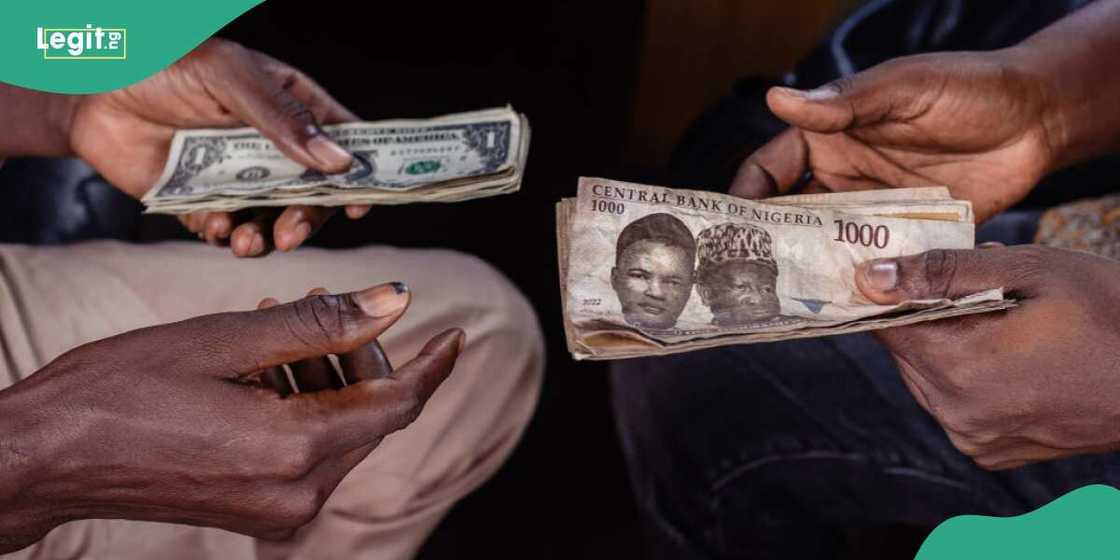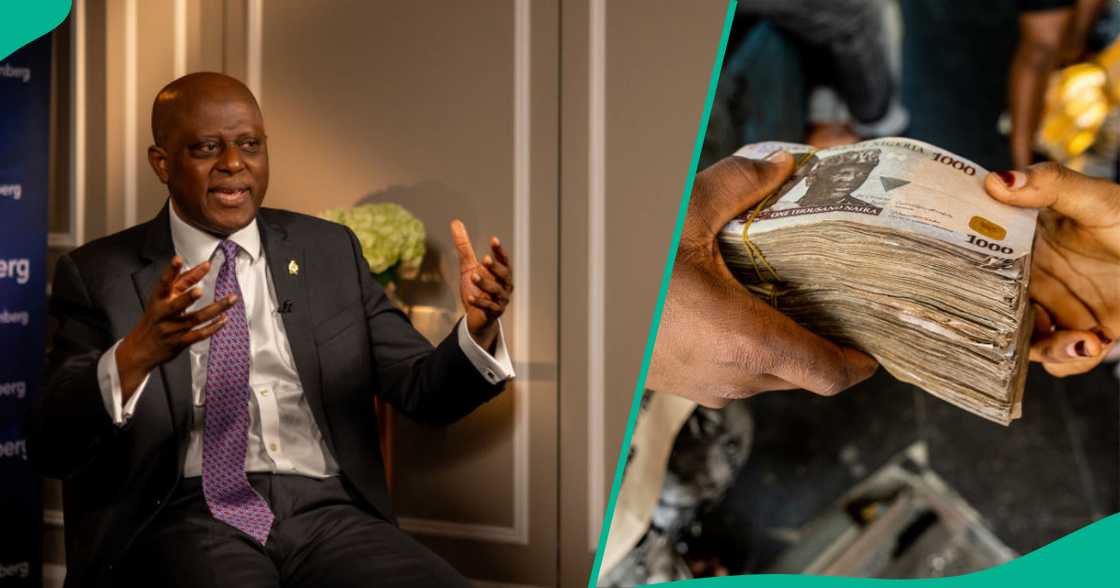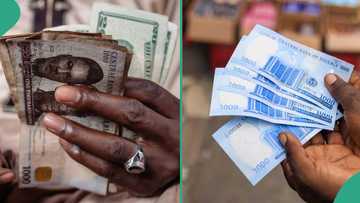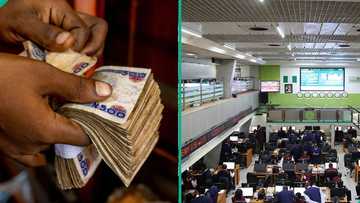Naira Crashes as Traders, Banks Quote New Dollar Exchange Rate
- Naira depreciates across official market segments as year-end FX demand surges ahead of festive imports and corporate payments
- CBN data also showed that external reserves rise to $46.7bn, boosting CBN’s capacity to stabilise
- Traders expect continued pressure through December but anticipate remittance inflows to offer ease the pressure
Legit.ng journalist Dave Ibemere has over a decade of experience in business journalism, with in-depth knowledge of the Nigerian economy, stocks, and general market trends.
The naira weakened against major global currencies on Thursday, November 27, as rising end-of-year demand for foreign exchange continued to exert pressure on the market.
The local currency dipped by 99 Kobo or 0.07% to close at N1,443.91/$1 in the Nigerian Foreign Exchange Market (NAFEM), compared with N1,442.92/$1 recorded in the previous session.

Source: Getty Images
The pressure extended to other currency pairs as the naira fell against the pound sterling, losing N6.50 to finish at N1,913.03/£1, down from N1,906.53/£1 on Wednesday.
Naira also slipped against the euro by N3.02, ending the day at N1,670.90/€1, a slight decline from the previous rate of N1,667.88/€1
Across the retail segment of the market, the Naira showed similar weakness.
At the GTBank forex counter, it depreciated by N1 to close at N1,447/$1, compared with N1,446/$1 recorded a day earlier.
Meanwhile, it was the same story for the naira in the black market.
Abdullahi a BDC trader told Legit.ng that the naira fell by N8
"Demand is picking up fast. We’re buying dollars at 1,453 and selling at 1,468. Pounds go for N1,900 to N1,930, and euros are trading between N1,650 and 1N,680.”
Expert insight on naira
Market analysts attributed the sustained pressure to increased foreign exchange demand as Nigeria heads into December, traditionally one of the busiest months for importers and retailers.
Businesses in manufacturing, fast-moving consumer goods, and general merchandise are boosting inventories ahead of the Christmas and New Year sales boom.
Additionally, several companies complete annual supply contracts between November and December, leading to a spike in demand for dollars to settle foreign obligations.

Source: Getty Images
The heightened demand comes at a time when FX inflows into the official market have been tapering, a trend that compelled the CBN to intervene last week with new measures aimed at stabilising liquidity.
Although details of the intervention were not immediately disclosed, traders said the apex bank has stepped up oversight and supply injections to ensure orderly market conditions.
Despite the current pressure, analysts remain optimistic about the CBN’s ability to manage the short-term volatility.
Nigeria’s external reserves have risen to $46.7 billion, supported by a combination of stronger non-oil export receipts, improved oil production, increased diaspora remittances, and growing portfolio investment inflows.
Customs Exchange rate
Earlier, Legit.ng reported that the cost of bringing goods into Nigeria is set to drop even more, as the Central Bank of Nigeria (CBN) has lowered the customs duty rate to N1,421.23 per dollar.
This new rate marks a notable drop from the previous N1,487.396/$1 recorded on Tuesday, October 7, showcasing the naira's continued recovery in the foreign exchange market.
The CBN instructed the Nigeria Customs Service and other relevant parties to use the closing foreign exchange rate on the day to open a Form A.
Proofreading by James Ojo, copy editor at Legit.ng.
Source: Legit.ng




